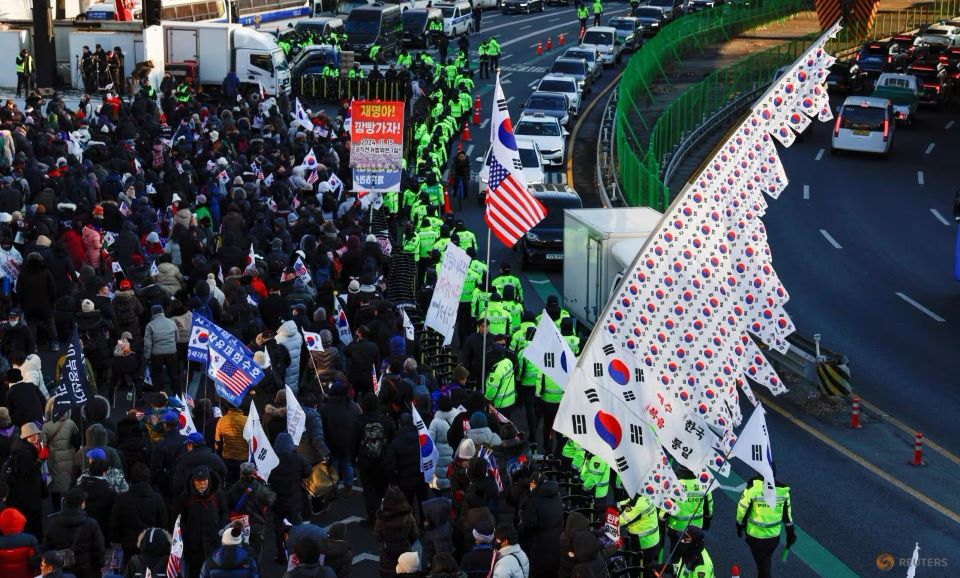Press protection NGOs and news organizations are growing concerned that Malaysia, under Ahmad Fahmi Fadzil, the Minister of Communications and Digital in the Pakatan Harapan (PH) government, is approaching the days of the UMNO administration under Najib Razak in restricting the public flow of information.
“Don’t get upset with me if there is a call or a radio car outside of your house. We are monitoring, behave yourself,” Fahmi told one reporter. He appears to be making good on his threats by blocking a number of news portals and blogs including Malaysia Now, Malaysia Today, and the Wee Choo Keong blog, which carry independent news about the government, and which all have been blocked without notice.
Opposition politicians, journalism organizations, and activists demanded that Fahmi explain why and how the blockages took place. He has yet to provide an explanation, saying he never instructed the block of “any news portal.” Cloudflare, on which the news portals are carried, says it has no evidence that the blockages occurred because of its outages.
There has not been censorship of political and commentary sites on the web since the days of former Prime Minister Najib Razak, when he blocked sites critical of him over the 1MDB scandal back in 2014-15, including Asia Sentinel, which lost thousands of readers, and The Sarawak Report, edited by Clare Rewcastle Brown, who played an instrumental role in bringing down the Barisan Nasional government headed by Najib in 2018. Local independent journalists including Malaysiakini and others were constantly harassed and threatened.
“The Malaysian government exerts a great deal of political pressure to deter the media from tackling taboo subjects or from criticizing politicians and government officials, and the authorities harass investigative reporters, according to the Paris-based Reporters Sans Frontiers. “The monarchy is an extremely sensitive subject. Any form of commentary or reporting deemed critical of the monarchy can result in prosecution and heavy penalties, leading to generalized self-censorship on the topic.”
The concern is especially distressing because Anwar Ibrahim as opposition leader had stood firmly on the side of press freedom. Now, in charge of the government, the reformasi commitment appears to have diminished in many areas. Last week, for instance, human rights activist Shashi Kumar was told by the police in the Kuala Lumpur suburb of Shah Alam that he is being investigated for violation of the Penal Code related to international insult and provocation of public peace, the Malaysian Communications and Multimedia Commission Act, related to abuse of internet facilities, and the Minor Offences Act, related to insulting behavior after he criticized the prime ministers conversion of an Indian youth to Islam at a mosque he visited earlier. The Tamil Indian community is very concerned over the conversion of children to Islam without the knowledge of both parents, a matter that needs discussion and some form of resolution, to protect the rights of both parents having a say on their children. The police wanted to confiscate Shashi’s phone when he visited the police station with no guarantee he would get it back.
Abuse of power
Lawyers for Liberty (LFL), a Kuala Lumpur-based human rights and law reform initiative claimed in a recent press statement that Fahmi had abused his power as a minister by ordering reports to be lodged with the media and communications commission under his own purview to investigate those accusing him of disseminating political misinformation. A poster accusing Fahmi of instructing government-friendly parties to blame the rural Islamist Parti Islam se-Malaysa (PAS) for the mid-July cancellation of the Good Vibes Festival concert recently. The concert was canceled by Fahm himself after what was described as an on-stage stunt by British band The 1975’s frontman Matt Healy and bassist Ross MacDonald involving launching an expletive-riddled tirade against Malaysia’s anti-LGBT laws that led up to a deep kiss shared between both the two on stage. Fahmi denied the allegations.
Critics say Fahmi makes up government policy as he goes along, for instance over the implementation of internet provider Starlink, the brainchild of tech billionaire Elon Musk.
The media and communications commission recently granted a 10-year license to a foreign company to become an internet service provider for Starlink, ignoring the 30 percent Bumiputera equity requirement to provide satellite broadband services. That followed Prime Minister Anwar Ibrahim’s 25-minute video call with Musk. The company is fully owned by Amsterdam-based Starlink Holdings Netherlands, even though there is a 49 percent cap on foreign equity for network facilities provider (NFP)and network service provider (NSP) licenses. The exemption was granted by the ministry on the basis of the value and benefits provided by Starlink. However, there are a number of outage issues with Starlink, and supplying broadband to 40 schools, as Anwar requested, are in areas where the existing network service providers already have sufficient capacity to supply more reliable services at cheaper rates.
The Starlink deal may have helped in remote areas of Sarawak and Sabah, the critics say, asking why this wasn’t thought of. Why was part of the NFP and NSP market given over to a foreign company, when local companies are already servicing the nation adequately? Instead of lowering the costs of broadband for Malaysians, the Starlink option is being offered at RM220 per month, with an upfront ground unit required, costing RM11,500, only increasing option costs.
Fahmi Fadzil himself became what was called a “minor celebrity” after being forced to agree in 2011 to tweet 100 times that he defamed a publishing company. Fahmi had published a tweet about a pregnant friend who purportedly resigned from Female magazine due to poor human resource practices by her employer, BluInc Media, according to a blog called The Nut Graf. In his 100-tweet apology, Fahmi said that this was, in fact, untrue. Others said Fahmi should have verified his facts before tweeting.
Fahmi has defended himself, issuing a statement at a media conference in defense of free speech, with the caveat being that it should be within the limits of existing laws. Free speech, he said, should “have a basis and can be defended in court.”
His ministry, he said, is committed to “closely cooperating with the Malaysian Communications and Multimedia Commission and social media platform operators in order to discuss concerns over misinformation, extremist content, and its regulatory framework. But, he told the conference, free speech should not be used to make baseless accusations or defamatory purposes. It appears he is increasingly determining personally what are baseless accusations or defamatory purposes, critics say.












.jpg&h=630&w=1200&q=100&v=5f99a4b43f&c=1)








Discussion about this post